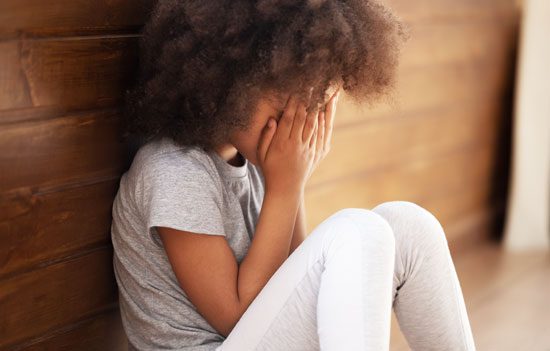If you’ve been through a stressful event that overwhelmed your ability to cope, then you are a trauma survivor. The good news is that you aren’t alone. A lot of people have had at least one traumatic experience in their lifetime and are generally able to move past the event with time.
What Is Trauma?
Trauma is any difficult experience that exceeds a person’s ability to manage it. Because every person is different and has a different range of coping skills, what is traumatic for one person may not be traumatic for another. In general, some examples of things that are commonly found to be traumatic include:
- Suffering abuse
- Surviving a natural disaster
- Losing a loved one
- Engaging in warfare
- Being involved in a serious accident
- Entering foster care
Trauma Versus PTSD
A person who experiences trauma may or not develop post-traumatic stress disorder (PTSD). PTSD is a more extreme response to trauma, generally occurring when the trauma is particularly severe or multiple traumas have been endured. Most people who experience only a single, brief traumatic episode do not develop PTSD.
How Trauma Manifests
While a person may not have PTSD, if they have suffered a trauma, it is important that they be able to process the difficult experience so that they can move forward with their life. It is important to understand how trauma impacts the whole person if we are to help ourselves or someone we love to heal from the effects of a traumatic event.
The Child Welfare Information Gateway, a part of the Children’s Bureau, offers a resource for parents who are raising children who have survived traumatic experiences, which can be helpful in our understanding of the ways trauma impacts the systems of the body:
Body
- May exhibit physical responses to stress
- May develop chronic illnesses, even into adulthood
Brain
- Thinking, learning and concentration may all be impacted
- Memory may suffer
- Changing between activities may be more difficult
Emotions
- Self-esteem could decrease
- May feel unsafe
- Emotional regulation could be difficult
- Relationships with friends and family could be impaired
- Trust issues could develop
- Depression and anxiety may surface
Behaviors
- Impulses may be difficult to control
- Fighting and aggression could increase
- Substance abuse could develop
- Increased likelihood of suicidality
Trauma Reactions at Different Ages
The Substance Abuse and Mental Health Services Administration (SAMHSA) indicates that children may react differently to trauma depending on their age. Below are some common changes that could develop when different-aged children experience traumatic events:
- Preschoolers: Fear separation from parents/caregivers, may cry/scream a lot, decreased appetite, nightmares
- Elementary Students: Anxiety, feelings of guilt/shame, difficulty focusing, sleep problems
- Adolescents: Depression, isolation, eating disorders, self-harm, using substances, sexually acting out
Parenting a Child with Trauma
If you are parenting a child who has suffered from trauma or even if you are trying to show yourself some grace following a traumatic experience, the Children’s Bureau recommends taking the following steps:
- Identify trauma triggers – try to determine what activates the trauma response; by understanding these triggers, it will be easier to navigate and avoid triggering in the future.
- Be emotionally and physically present – a hug, a listening ear, and time with family should not be underestimated as powerful tools in helping children heal.
- Respond, but don’t react –survivors of trauma can display some challenging behaviors, and it is important that parents stay calm and rational when addressing these issues and that adults give themselves some grace if they are working through trauma.
- Avoid physical punishments – especially for children who have been abused before, physical punishments can be triggering and haven’t been found to improve behavior in general.
- Don’t take it personally – the behaviors a traumatized person displays are not generally meant to make other people angry. If a person is using unsafe or undesirable behaviors, they may need to learn to use words to express their emotions and fears. Allow the words to be received without judgment.
Changing Outcomes
It is not a foregone conclusion that anyone who experiences a traumatic event will have the difficulties listed above. Effective treatment and preventing further trauma can allow the person to heal and progress past the traumatic event. A PTSD diagnosis is not required for treatment to address trauma.
Treatment Options
Some treatment options that are recommended for dealing with trauma are:
- Expressive Writing about the experience and one’s feelings around it
- Mindfulness – meditation, yoga, deep breathing, etc.
- Interacting with animals
- Therapy – numerous options include:
- Cognitive Processing Therapy
- Prolonged Exposure Therapy
- Eye Movement Desensitization and Reprogramming (EMDR)
- Stress Inoculation Therapy
One of the most important things to remember about trauma is that it isn’t a weakness to admit that something has impacted us. Some things are not easy for anyone to endure, such as abuse, warfare, and natural disasters. By acknowledging that something has overwhelmed our ability to cope, we can begin to build our resilience and become even stronger than we were before.






